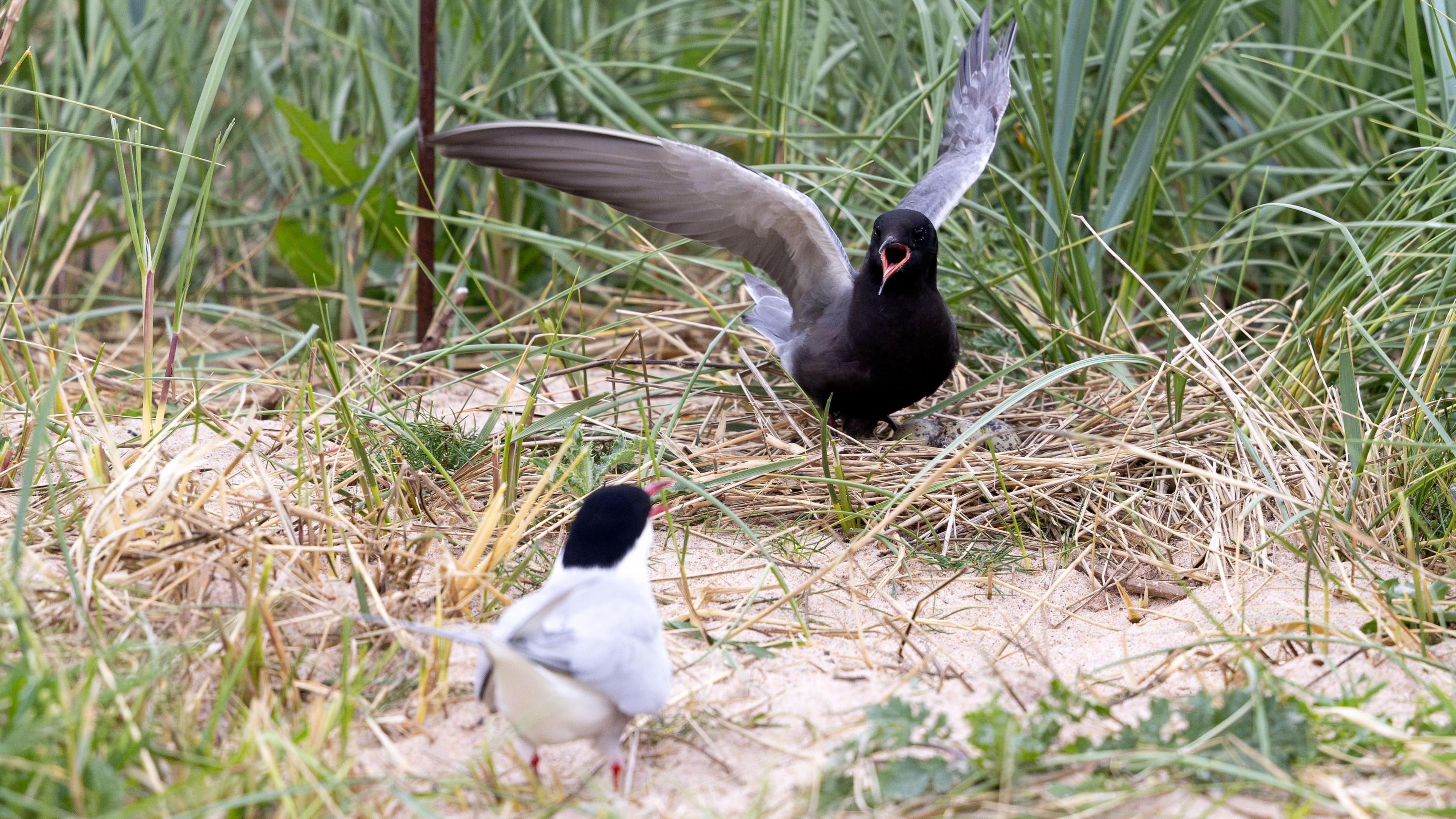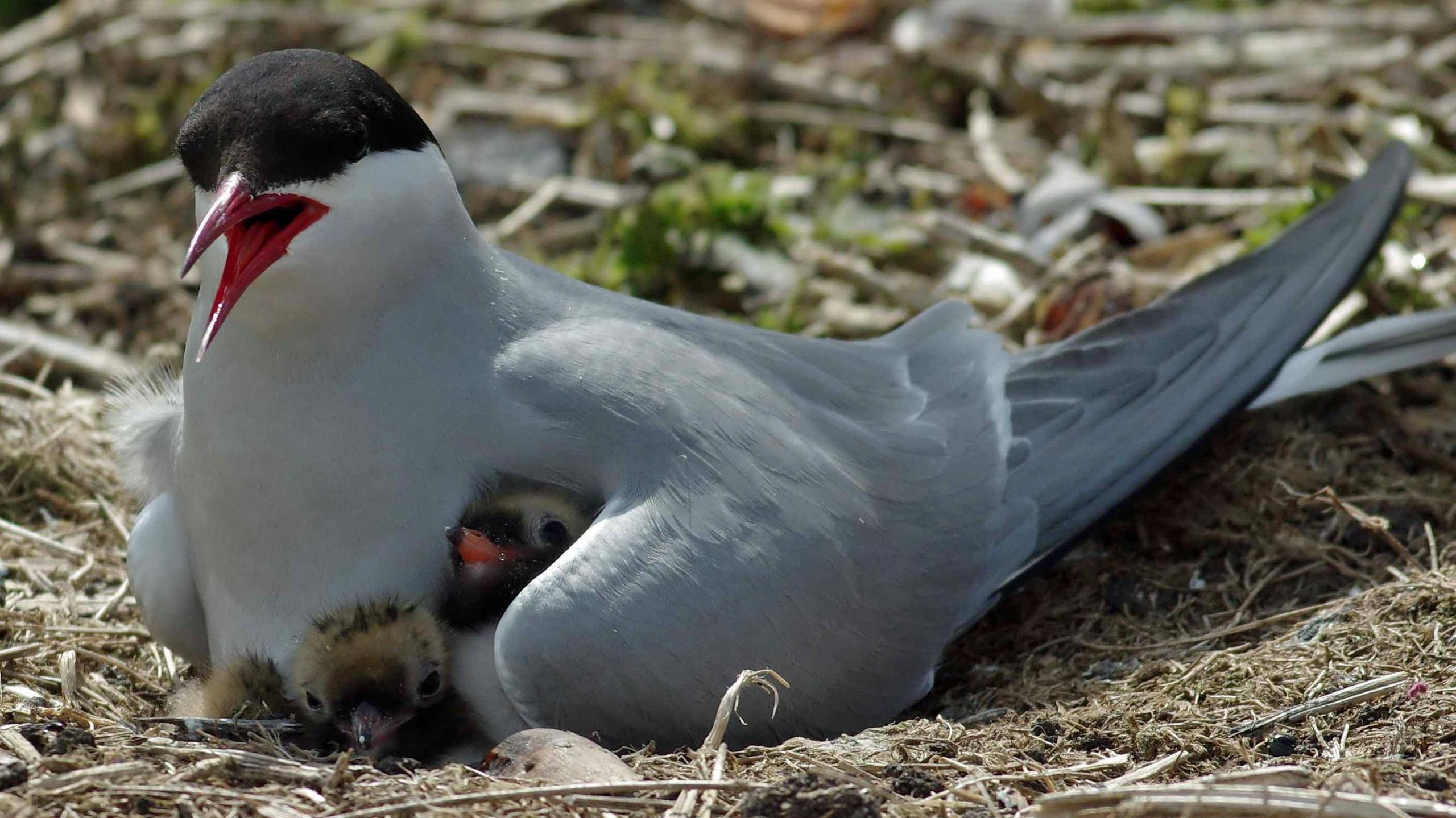Rare black tern returns to UK site as seabird numbers fall

The black tern is a rare visitor to the UK
- Published
A conservation charity has reported that numbers of Arctic terns nesting at a key breeding site in the UK have dropped by nearly a third this year.
Long Nanny, a breeding site near Beadnell in Northumberland, where Arctic terns and little terns nest, is cared for by the National Trust.
The National Trust says climate change and disease are to blame for the falling numbers.
But there is some good news for the seabird as the American black tern - a different species to the Arctic and little tern - makes a rare reappearance at the site.
- Published18 June
- Published16 February
An American black tern which is a very rare visitor to the UK was confirmed as a repeat visitor when a ring was placed on its leg last year.
The National Trust says it has spent the summer at Long Nanny for the last six years.
It's reappearance is a ray of hope for the site which after reports from the charity suggest the number of occupied Arctic tern nests at the breeding site has fallen from 1,037 in 2024 to 724 this year.
The numbers of little terns have also fallen.
The findings come a month after strong waves washed away the nests of little and Arctic terns.

Some of the UK's rarest seabirds, including Arctic terns, nest at Long Nanny, near Beadnell, Northumberland
National Trust conservationists warn that the seabirds have been affected by rising seas and stronger storms due to climate change .
Bird flu is also a big problem for seabird colonies around the UK's coasts.
The Trust says when it began managing the site in 1977, there were no Arctic terns, and only a handful of little tern nests.
James Porteus, lead ranger for the National Trust said: "Despite our best efforts, even the most carefully protected nests can be lost in a single tide.
"The changing fortunes of these remarkable coastal birds [show] just how vulnerable our seabird colonies are."
